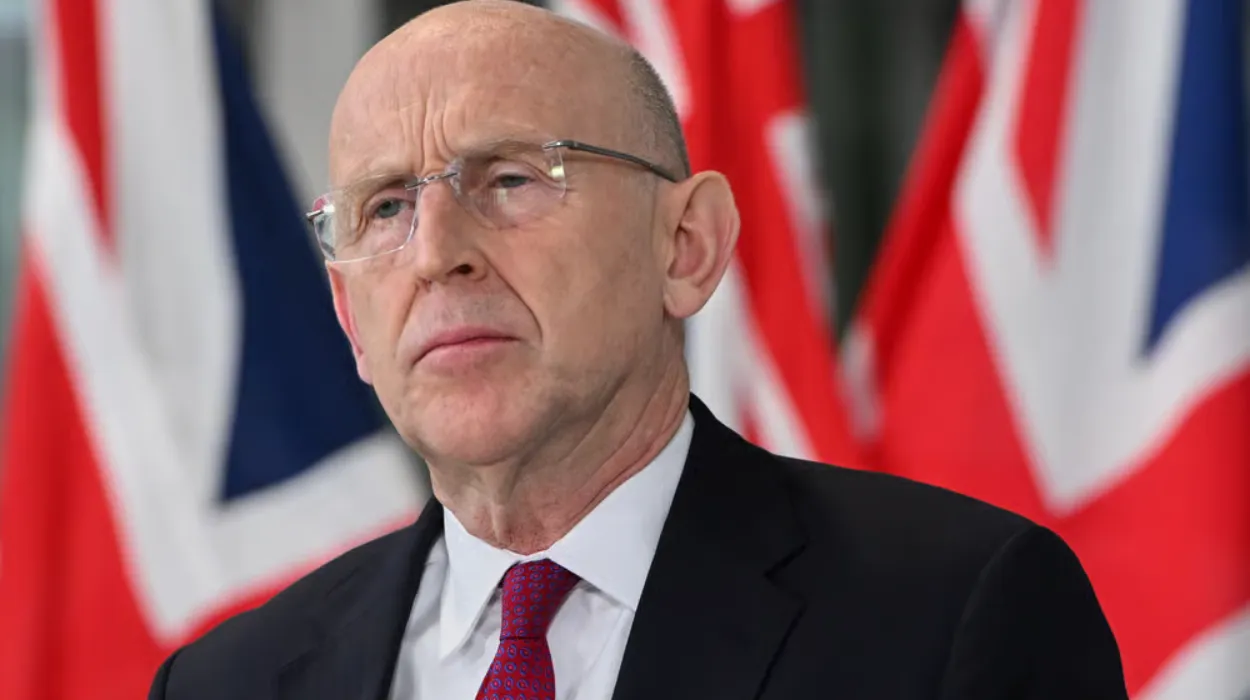UK (Parliament Politics Magazine) – Defence Secretary John Healey revealed the UK faced 90,000 cyber attacks last year, warning of rising threats as NATO focuses on homeland security.
As reported by GB News, John Healey said Britain suffered thousands of cyber attacks from hostile nations, including Russia, last year.
John Healey’s stance on cyber threats to the UK
During an interview on GB News, John Healey stated,
“We are under constant attack. I came in as Defence Secretary less than a year ago and I have been quite taken aback, I have to say, to find that over the last year, we’ve had 90,000 direct attacks on different parts of defence that we can link to hostile states, including Russia.”
The statement came as the government unveiled its National Security Strategy, highlighting rising dangers to Britain’s homeland security from foreign actors.
Mr Healey warned of continued Russian activity near UK infrastructure, calling it a serious and escalating security concern.
He said,
“We’ve seen increasing Russian activity around our underwater sea cables, and it’s really telling us that in this world of increasing uncertainty, we have to take the defence of our homeland more seriously.”
According to him, the revelations placed renewed focus on the National Security Strategy, which the government published on Tuesday.
Mr Healey pointed out that NATO discussions would centre on strengthening homeland resilience.
He stated,
“It’s also at the heart of the debate at NATO this afternoon where NATO leaders will recognise the importance of homeland resilience, it will recognise the importance of homeland security, energy security, cyber security and border security.”
He said NATO allies are expected to agree on increasing defence budgets to 5% of GDP by 2035.
The Defence Secretary stated,
“This will be part of a historic commitment NATO leaders are expected to make this afternoon to increase core defence and this wider national resilience spending to five per cent in a decade by 2035.”
National Security Strategy report about threats to the UK
According to the strategy, the UK plans to fulfil its defence pledge with 3.5% of GDP allocated to military capability and 1.5% to national resilience and security.
The government predicts national security spending will reach 4.1% of GDP by 2027, but how the extra £40bn needed by 2035 will be funded remains uncertain.
The National Security Strategy urges Britain to prepare for threats at home, signalling a major shift in the country’s defence stance.
The document read,
“For the first time in many years, we have to actively prepare for the possibility of the UK homeland coming under direct threat, potentially in a wartime scenario.”
According to the Security Strategy, managing nuclear arms is harder than ever, with more countries acquiring weapons and outdated global oversight mechanisms.
The strategy raises concerns over growing ties between hostile states, terrorist groups, and criminals targeting the UK.
The document states three key priorities: safeguarding national territory, asserting global strength, and enhancing unconventional defences.
The government plans to expand its sovereign computing capacity by 20 times by 2030 and ensure the AI Security Institute remains the world’s leading state-run AI safety body.
AI Growth Zones are planned to boost UK tech, with Culham Campus hosting a 100MW data hub, aiming for a 500MW expansion.
The government also pledges to rebuild the defence industry by constructing six new munitions factories and securing up to 7,000 domestically made long-range weapons.
Keir Starmer’s views on the UK’s new F-35 jets
At the NATO summit, when asked what the F-35s bring to the UK, Sir Keir Starmer responded,
“They give us a diversity of capability and a capability that we didn’t have before, and that is really important.”
What did Mark Rutte say about the UK’s F-35 plan?
Mark Rutte, the head of NATO, said,
“The UK has declared its nuclear deterrent to NATO for many decades, and I strongly welcome today’s announcement that the UK will now also join NATO’s nuclear mission and procure the F-35A.”

